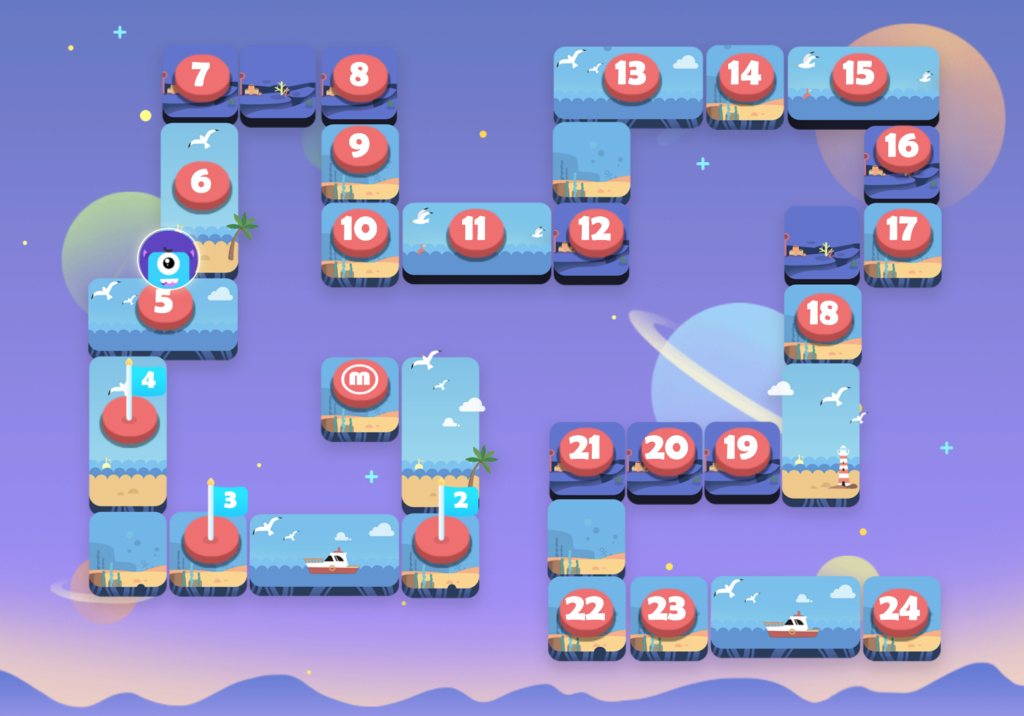In today’s digital age, traditional classrooms and textbooks are not the only means to impart education. The rapid advancement of technology has paved the path for a new innovative vehicle for children’s education: educational games.
Combining the thrill of play with the essence of learning, educational games provide a fresh and compelling approach, captivating young learners while infusing education with a dash of fun. These interactive and engaging learning tools are transforming the learning landscape. Be it honing critical thinking skills, mastering mathematical concepts, or embarking on historical quests, these games promise a delightful, educational experience.
Thinking of integrating educational games into your child’s daily routine? Let’s dive into some of the top educational games that can give your child both knowledge and countless hours of entertainment. Here are the 6 games we love and recommend strongly!
6 Educational Games We Love
Best for: Children aged 2-8 years.
Why it’s great: This comprehensive app covers a range of subjects from reading and math to science and art. The interactive activities and lessons adapt to your child’s learning pace, ensuring personalized education.
Best for: Children aged 6-10 years.
Why it’s great: Osmo offers a unique blend of digital and physical play. With interactive activities ranging from drawing to math, it fosters creativity and problem-solving skills. You will need an iPhone, iPad or Amazon Fire Tablet to use.
Best for: Preschool to early elementary.
Highlights: With a focus on math skills, this app uses beautifully crafted graphics to teach counting, sorting, and more.
Best for: Children aged 3-8 years.
Why it’s great: This learning tablet provides a guided learning experience with a structured curriculum. It’s a perfect blend of fun and foundational skills. Your child can choose from hundreds of fun educational games to build their reading, math, and science skills.
Best for: Children aged 5-8 years.
Why it’s great: Bingo has always been fun, and when you add math to the mix, you get a powerful tool to reinforce math concepts in a playful setting.
Best for: Children aged 4-12 years.
Why it’s great: CampusTop offers a structured guided game play that is assisted by our experienced educators. Of course, we may be a bit biased here, but we believe we offer the best educational game to learn coding.
Interested in Getting Started with CampusTop?
What Qualities Should You Look For in Educational Games for Your Child?
When choosing an educational game for your child, keep in mind:
Learning Objects:
Ensure the game aligns with the skills your child needs to develop.
Engagement:
Interactive elements and captivating visuals keep the interest alive, and your child engaged.
Age Relevance:
The right educational game should be apt for your child’s age to ensure effective learning.
Feedback Mechanism:
Progress tracking and immediate feedback loops are crucial in determining future learning paths.
Real-World Application:
Seek games that bridge the digital learning and practical application gap.
Are Children's Educational Games Expensive?
The looming question in many parents’ minds is the cost factor. It’s only natural to wonder, “Are these games going to break the bank?” The good news is: not necessarily! Many excellent educational games are available for free or come with a nominal price tag. Of course, there are premium versions or fuller experiences that might be on the pricier side, but they often offer extended content, more in-depth learning modules, or an ad-free environment. Plus, when you compare the cost to traditional learning resources or tools, the value becomes evident.
The interactive nature of games can lead to better retention and a deeper understanding of concepts. In short, while there’s a range of price points, there’s something for every budget. And often, the investment is well worth the returns in terms of your child’s learning and enjoyment.
Conclusion
The world of education is ever evolving, with digital games playing a pivotal role in reshaping learning methods. By seamlessly blending conventional teaching with technology, these games stimulate young minds, fostering creativity, curiosity, and collaboration.






